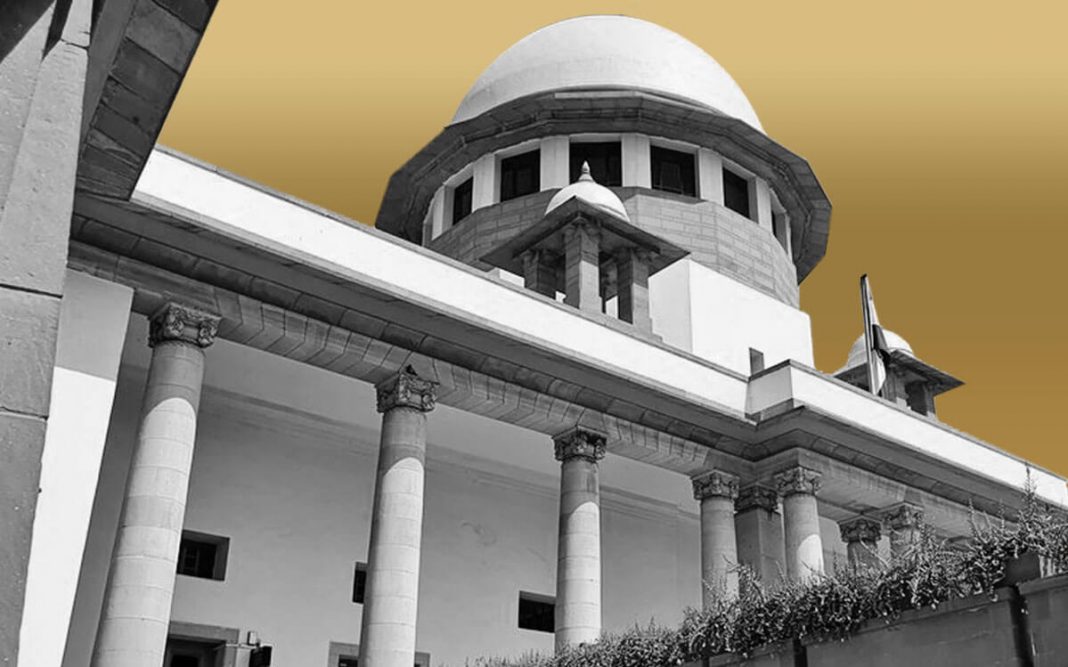The Supreme Court has dismissed a plea as withdrawn against certain sections of the Right to Education Act 2009 for being “arbitrary and irrational” and seeking the introduction of a common syllabus and curriculum for children across the country.
The petition had alleged that the Centre inserted Section 1(4) and 1(5) in RTE Act to deprive educational excellence to Madrasas, Vedic Pathshalas and educational institutions imparting religious instruction.
The Right of Children to Free and Compulsory Education Act, 2009,—[Section 1(4) Subject to the provisions of articles 29 and 30 of the Constitution], the provisions of this Act shall apply to conferment of rights on children to free and compulsory education.
Section 1(5) Nothing contained in this Act shall apply to Madrasas, Vedic Pathsalas and educational institutions primarily imparting religious instruction.]
A Division Bench comprising Justice L. Nageswara Rao and Justice B.R. Gavai on Friday granted liberty to Senior Counsel Ranjit Kumar, appearing for the petitioner, to withdraw plea and approach the High Court.
The Court refused to entertain present plea under Article 32 and opined that the petitioner should approach the High Court by filing a petition under Article 226 of the Constitution, raising all points that are urged in present writ petition.
“We make it clear that we have not expressed any opinion on the merits of the case,” said the Court.
The petition was filed by Ashwini Kumar Upadhyay, known to be a public-spirited individual and a “PIL Man,” having filed more than 100 PILs. In one of his PILs, a bench headed by CJI Ramana had issued ‘urgent’ directions, stating that the state governments cannot withdraw criminal cases against MPs and MLAs without the approval of the concerned state High Court.
According to the present petition, the Centre inserted Section 1(4) and 1(5) to deprive educational excellence to Madrasas, Vedic Pathsalas and educational institutions imparting religious instruction.
The plea had further alleged that the prevailing system does not provide equal opportunity to all children as syllabus and curriculum varies for EWS, BPL, MIG, HIG and Elite Class.
The petition read, “Sections 1(4) and 1(5) of the RTE Act are the biggest barrier in expounding the Constitution to meet the goals of Articles 14, 15, 16, 21, 21A, 38, 39, 46 and Preamble. Introduction of Common syllabus common curriculum would enable every child to be placed on a level playing field for the challenges of future and meaningfully contribute in achieving the great golden goals as set out in Preamble, particularly fraternity, unity and national integration.”
32105-2021-35-16-33317-Order-11-Feb-2022

